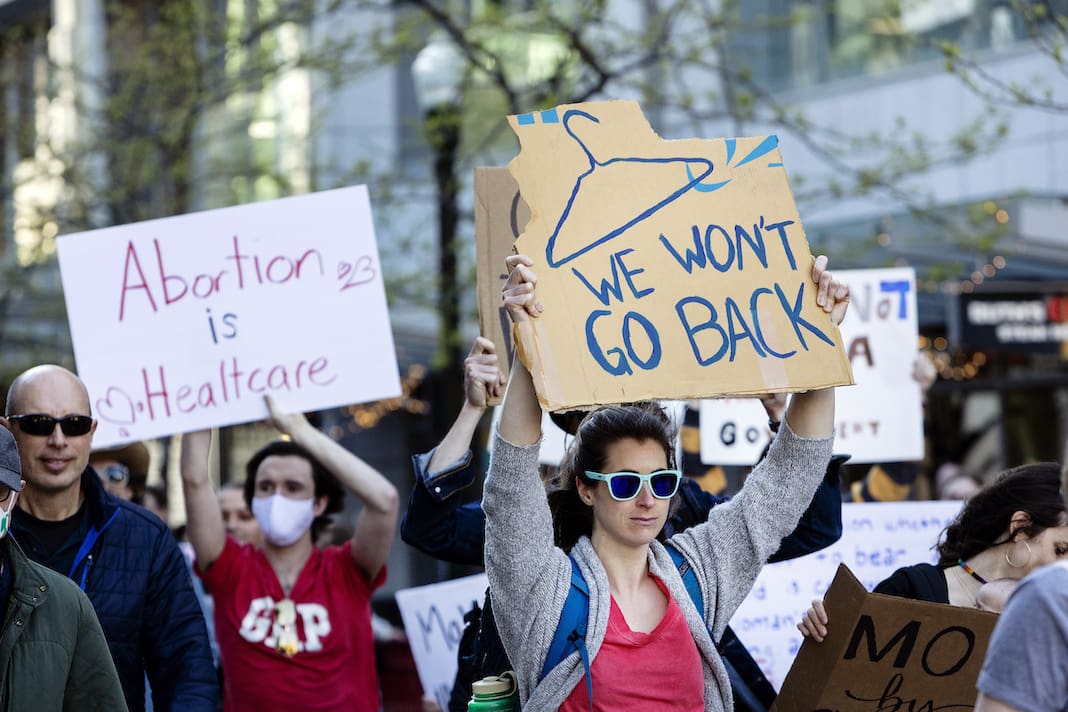The U.S. Supreme Court could restrict medication abortion access in Minnesota, despite protections
Minnesota lawmakers last year passed a sweeping law protecting abortion rights and making Minnesota a reproductive rights refuge in the Upper Midwest. But the U.S. Supreme Court is considering a case whose outcome could still limit access to an abortion pill despite Minnesota’s protections.

Minnesota lawmakers last year passed a sweeping law protecting abortion rights and making Minnesota a reproductive rights refuge in the Upper Midwest. But the U.S. Supreme Court is considering a case whose outcome could still limit access to an abortion pill despite Minnesota’s protections.
What is the Supreme Court considering?
The U.S. Supreme Court on Tuesday will hear oral arguments in a case challenging one of two drugs used in medication abortion — mifepristone. In April 2023, U.S. District Judge Matthew Kacsmaryk issued a ruling that ended access to mifepristone nationwide after anti-abortion doctors challenged the legality of the FDA’s approval of the drug. But an appeals court days later ruled that the abortion drug could still be available nationwide.
That conservative appeals court, however, did agree with Kacsmaryk that access to the drug could be limited, particularly how far along in their pregnancy a person could take it, the number of medical visits needed to prescribe it and whether the drug could be prescribed via telehealth and delivered through the mail.
How could the Supreme Court restrict mifepristone access in Minnesota?
In a worst-case scenario for abortion providers and people who need abortion care, the Supreme Court could revoke access to telehealth prescriptions — making patients travel in-person for an appointment and to receive the medication.
In Minnesota, Planned Parenthood North Central States currently mails mifepristone after a telehealth appointment to patients with a Minnesota address, but not across state lines.
Providers currently prescribe mifepristone in a two-drug regime. Patients take mifepristone first, and then either right away or up to 48 hours later take misoprostol, which is not being legally challenged. Patients can get a medication abortion solely with misoprostol — which is as safe and as effective as the two-drug regime — but it has more side effects like cramping and bleeding.
Regardless of what the Supreme Court rules, mifepristone will remain available. The justices are deciding how easily patients can access the drug to terminate their pregnancies.
“We know for sure that the U.S. Supreme Court has declined to consider revoking the FDA approval of mifepristone. We know that FDA approval happened more than 20 years ago, more than 5 million people have safely used mifepristone,” said Planned Parenthood North Central States CEO Ruth Richardson. “With the U.S. Supreme Court saying that they are not going to consider the revocation of that approval, I think that’s an important win.”
The Supreme Court justices will also decide whether to change at what gestational age patients can take mifepristone — authorizing it until seven weeks instead of the current 10 weeks — but the New York Times reported that most doctors can use their medical discretion to prescribe mifepristone up to 12 weeks.
How common is mifepristone?
Nearly 60% of abortions in Minnesota involved mifepristone in 2022, according to the Department of Health.
Where does our Legislature stand on abortion rights?
Last year, the DFL-controlled Legislature passed and Gov. Tim Walz signed a bill ensuring residents have the legal right to an abortion. The Supreme Court in 2022 overturned Roe v. Wade, and 21 states have since banned abortion or issued restrictions that are only possible because Roe was overturned.
When can we expect a ruling?
The Supreme Court will likely issue a ruling on the accessibility of mifepristone sometime this summer.
This story was originally published in the Minnesota Reformer
Recommended

Fate of ‘game changer’ women’s health care bill in hands of Missouri Senate
A bill that would improve health care access for Missouri women almost died in the House after some lawmakers conflated birth control legislation with abortion medication
By Anna Spoerre, Missouri Independent - May 08, 2024
Trump leaves door open to banning medication abortion nationwide
Donald Trump is planning to release more details in the weeks ahead about how his administration would regulate access to medication abortion, according to comments he made during a lengthy interview with Time magazine published Tuesday.
By Jennifer Shutt, States Newsroom - April 30, 2024
Ohio doctors fear effects of emergency abortion care case set to go before U.S. Supreme Court
A federal law that allows emergency departments to treat patients without regard to their ability to pay will be under U.S. Supreme Court scrutiny this week, and Ohio doctors are concerned about the case’s local impact on emergency abortion care.
By Susan Tebben, Ohio Capital Journal - April 23, 2024







































































